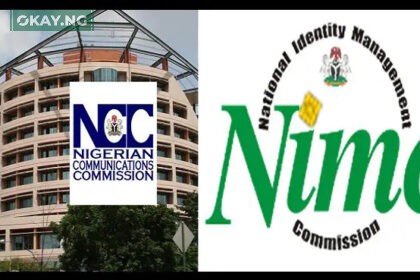In a significant move to curb traffic violations and enhance road safety, the Lagos State Government has announced the deployment of approximately 3,000 “e-police” and speed limit cameras across the state. This ambitious initiative, revealed by Engr. Akin-George Fashola, Director of the Lagos State Vehicle Inspection Service (VIS), on Traffic Radio 96.1 FM, signals a decisive shift towards technology-driven traffic management.
“We are committed to ensuring safer roads for all Lagosians,” Engr. Fashola stated, emphasizing the urgency of addressing persistent traffic infractions. “These cameras are not merely tools for enforcement; they are vital components of a comprehensive strategy to instill a culture of compliance.”
Already, speed limit cameras are operational on key routes like Alapere-Ogudu Road and Mobolaji Bank Anthony Way, setting clear speed limits of 80km/h and 60km/h respectively. E-police cameras, designed to detect red light violations and other offenses, are actively monitoring traffic at Allen Junction and Nurudeen Olowopopo Road in Ikeja.
The financial implications for non-compliance are substantial. Violators caught exceeding speed limits face a fine of N50,000. However, the VIS Director clarified that motorists have the right to contest fines with evidence, ensuring a fair and transparent process. “We understand that mistakes can happen, and we want to provide a system that allows for due process,” he explained.
Addressing concerns about commercial vehicle enforcement, Engr. Fashola revealed, “An average of 50 commercial buses are apprehended daily for various traffic violations. No one is exempt from the law.” This statement underscored the government’s commitment to equitable enforcement across all vehicle categories.
Read Also: ICYMI: Abuja Launches First Sustainable EV Charging Station
Beyond enforcement, the VIS has introduced an online roadworthiness recertification system, streamlining the process for vehicle owners. This digital innovation aims to reduce bureaucratic hurdles and enhance convenience. Furthermore, a new auto verification service provides crucial vehicle history information to prospective buyers, empowering them to make informed decisions.
This initiative aligns with the Lagos State Transport Policy, a 15-year plan aimed at modernizing the state’s transportation infrastructure. The policy’s short-term goals, particularly the implementation of Intelligent Transport Systems (ITS), are being realized through partnerships with technology giants like Huawei Technologies. The recent collaboration with Huawei to deploy four new ITS sites, complementing existing ANPR cameras, highlights the government’s commitment to leveraging technology for enhanced traffic management.
For many Lagos residents, the daily commute is a source of immense stress and frustration. Traffic congestion, coupled with reckless driving, creates a palpable sense of anxiety. The introduction of these cameras, while potentially daunting, offers a glimmer of hope for a more orderly and safer traffic environment.
However, the effectiveness of this initiative hinges on public trust and transparency. Citizens must feel assured that the technology is being deployed fairly and that the penalties are proportionate. The government’s emphasis on allowing appeals is a positive step, but ongoing communication and public engagement will be crucial to building confidence.
As I reflect on these changes, I see a city at a crossroads. We are witnessing a transition from a reactive approach to traffic management to a proactive, data-driven system. The success of this transition will not only improve road safety but also contribute to the overall quality of life in Lagos. The government’s investment in technology and its commitment to enforcement signal a clear intention to create a more efficient and secure transportation network.













